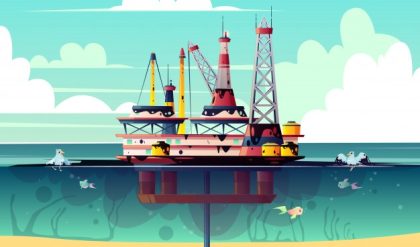“External water treatment, as the term is applied to water prepared for use as boiler feed water, usually refers to the chemical and mechanical treatment of the water source.”1
Boiler feed water is usually treated for impurities like hardness, silica, oxygen etc. before entering the boiler system. However, in some cases, the water source treatment outside the boiler system is not required and the treatment can be carried out within the boiler system only.
Evaporation
The basic method of water purification is referred to as evaporation. In this process, water is heated to a level that it transforms into vapors leaving impurities behind. These water vapors are then collected and condensed back to liquid state which is then used as boiler feed water. “Evaporators are of several different types, the simplest being a tank of water through which steam coils are passed to heat the water to the boiling point.”
However, at times, two water tanks can also be utilized in order to boost the evaporation efficiency and generate extra heat. Then, the water vapors from the one tank will be transferred to the other tank via coils. Use of evaporators is mainly preferred in areas where steam can be easily applied as the required heating source.
In boiler systems, evaporation is often used as one of the pre-water treatment technique. Some other advanced water treatment techniques are also available which are mentioned in section below. Evaporation technique has its own benefits especially in cases where the quantity of dissolved solids in the raw water is too much.
External Treatment Methods
Following are the major techniques employed for external water treatment:
· Clarification process
· Filtration process
· Softening action
· De-alkalization action
· De-mineralization technique
· Deaeration method
· Heating method
All the above mentioned techniques are helpful in purification and treatment of boiler feed water.
Also, several natural and artificial elements are available that are proficient in removing and replacing mineral ions present in the water source. “For example, in passing water through a simple cation exchange softener all of calcium and magnesium ions are removed and replaced with sodium ions.” Another valuable external water treatment process is called the hot lime-zeolite. In this method, the water for boiler use is first treated with lime to remove impurities like hardness, alkalinity and silica etc. and after that it is treated with a cation exchange softener. Since cation exchange process used alone can not remove the total solids present in the water, it is usually employed in combination with precipitation type softening for getting better water treatment results “This system of treatment accomplishes several functions: softening, alkalinity and silica reduction, some oxygen reduction, and removal of suspended matter and turbidity.
